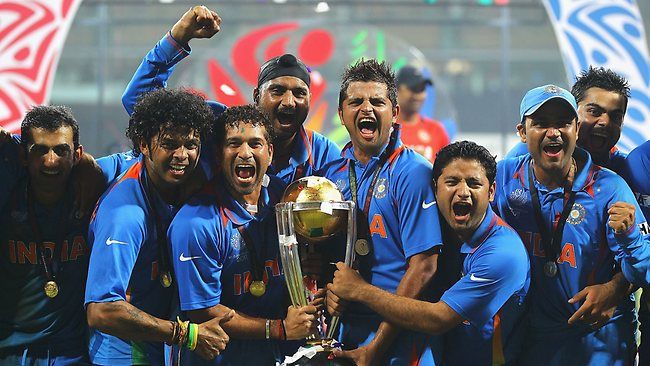The recent Asia Cup 2025 final, a contest often steeped in fervent passion and rivalry, took an unexpected turn that shifted attention from the boundary ropes to the corridors of political tension. As India clinched the coveted trophy, an incident involving the trophy presentation ignited a heated debate, drawing sharp criticism from none other than cricket luminary AB de Villiers. It served as a stark reminder that sometimes, even the `gentleman`s game` struggles to keep politics at bay.
The Dubai Debacle: A Trophy Unclaimed
The scene unfolded in Dubai, following India`s dominant victory over Pakistan in the Asia Cup 2025 final. The customary celebration, however, was overshadowed by an unusual tableau. Reports emerged that the victorious Indian team, led by captain Suryakumar Yadav, declined to accept the trophy from Mohsin Naqvi, the Asian Cricket Council (ACC) chief who also happens to be Pakistan`s Interior Minister. In a move that underscored the escalating tensions, Naqvi reportedly took the trophy and the winners` medals back to his hotel room, rather than proceeding with a contested handover.
This incident, subtle yet potent, quickly spiraled into a talking point across the cricketing world. It wasn`t merely about a trophy; it was about an uncomfortable silence, a strained interaction (or lack thereof), that highlighted deeper geopolitical fault lines permeating the sporting arena.
AB de Villiers: A Voice of Reason in a Fractured Landscape
Amidst the swirling speculation, a clear, authoritative voice emerged from one of cricket`s most respected figures. AB de Villiers, the South African maestro affectionately known as `Mr. 360` for his extraordinary batting prowess, didn`t mince words. Speaking on his YouTube channel, de Villiers expressed profound sadness over the incident, unequivocally stating that “politics should stay aside” from sports.
“Team India sort of weren`t happy with who was handing out the trophy. I don`t feel that belongs in sport. Politics should stay aside. Sport is one thing, and it should be celebrated for what it is. Quite sad to see that, but hopefully they will sort things out in the future. It does put the sport, the players, the sportsmen, the cricketers in a very tough position, and that`s what I hate to see. It was quite awkward there at the end.”
De Villiers` comments resonate deeply within the cricketing fraternity. As a former star of the Indian Premier League (IPL) and a global ambassador for the sport, his plea for the sanctity of cricket, separate from political maneuvering, carries significant weight. His frustration stemmed from seeing players caught in an unenviable position, forced to navigate diplomatic nuances instead of simply celebrating their athletic achievement.
The Perennial Struggle: Sport vs. Statecraft
The India-Pakistan rivalry on the cricket field is legendary, often described as more than just a game. Historically, these encounters have been tinged with intense nationalistic fervor, reflecting the complex relationship between the two nations. While sport is often lauded as a universal language, capable of bridging divides, it paradoxously also becomes a canvas upon which existing tensions are painted, sometimes with broad, uncompromising strokes.
The Asia Cup 2025 itself, despite the thrilling cricket played, was marred by a visible lack of traditional gestures of sportsmanship. Handshakes and friendly interactions, often commonplace even between fierce rivals, were notably absent. This undercurrent of political animosity effectively overshadowed the athletic excellence, leaving many to wonder if the `spirit of cricket` could truly thrive under such duress.
India`s On-Field Brilliance: A Silver Lining?
Despite the off-field drama, India`s performance throughout the tournament was nothing short of spectacular. They lifted the trophy unbeaten, showcasing a formidable T20 setup that has caught the eye of experts, including de Villiers himself. The South African legend, while critical of the political intrusion, was quick to pivot and praise India`s cricketing prowess, particularly with the upcoming T20 World Cup in mind.
“Let`s focus on what`s most important (the cricket itself). India are looking really, really strong. Building up to that big T20 World Cup. Remember, it`s not too far away. And they look like they`ve got a lot of talent, and they play the big moments well. So fantastic (to watch).”
This provides an interesting dichotomy: while the political atmosphere created an uncomfortable spectacle, the pure sporting achievement remained undimmed. It suggests that even amidst external pressures, the talent and dedication of the athletes can shine through, reminding us what the game is truly about.
The Asia Cup trophy controversy serves as a poignant reminder of the delicate balance between sport and politics. While the world yearns for sport to be a unifying force, the realities of geopolitical relations often intervene. AB de Villiers` clear stance is a call to action for stakeholders to protect the integrity of the game. For cricket to truly flourish as a `gentleman`s game,` it must continually strive to rise above the fray, allowing the bat and ball, rather than diplomatic discord, to dictate the narrative.

